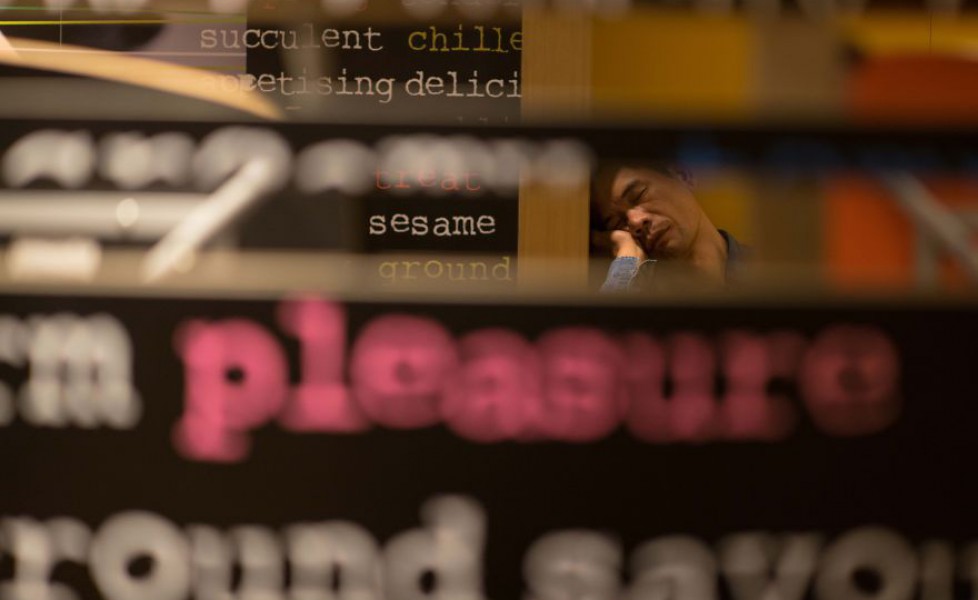Let me get my retaliation in first. Property prices are now falling. Even real estate professionals, for whom optimism is an endemic disease and a professional necessity, are resigned to a “correction”. They are now murmuring that prices might float down in a vague way over the next two years. This seems to me rather unlikely. Bubbles do not deflate gently over two years. They pop. That is why they are called bubbles. Anyway, with the first signs of the bubble deflating, or bursting, as you will, we also get the first bleats about “negative equity”.

This opaque phrase describes a simple situation: the home you bought becomes worth less than the loan you took out from the bank to pay for it. Let us say you pay HK$10 million for a flat. You borrow HK$9 million of this from the bank. Prices then fall. You find that your flat is worth HK$8.5 million. The value of the flat has now become minus half a million dollars. In theory, at this point you might give up, stop your repayments and move to your nearest McDonald’s. But why should you? In theory your bank may ask you to put up extra security for the loan, but – in practice – for reasons we will come to in a minute that will not happen either. So why should you worry?
This is actually a good question. Your flat is still doing for you all the things it was doing before. You can live in it, raise kids, entertain guests or whatever takes your fancy. The bank is not going to kick you out as long as you keep up the mortgage payments. This is because they will then end up with a flat worth HK$8.5 million which is on their books as HK$9 million. They will immediately have to acknowledge losing half a million bucks. So as long as you keep up your payments you don’t have to worry about the bank. This is, of course, not a good time to sell your flat. But you are neither homeless nor out of pocket as long as you continue to live in it.

So why does the doleful chorus about negative equity rise every time property prices go down? Well the news is not so good if you bought a second flat as an investment, an almost universal hobby among LegCo members, business people, professionals and what have you. Your investment has turned into a lemon. Instead of making money for you, it has landed you with long term payments which exceed what you are getting from rent and do not exceed the income you could have got from some alternative gamble like the stock market. If you bought a flat to live in, then “negative equity” is a theoretical concept, at least until you want to move. If you bought it as an investment, on the other hand, then “negative equity” is a painful reminder that real estate, like other investments, can go down as well as up.
It is interesting to see people who usually subscribe to the idea of general self-reliance and small government, calling for rescue from the consequences of their own folly. If the government proposes to provide pensions, public housing, relief for the poor or protection for the underpaid that is a deplorable interference with the beneficial operation of market forces, and an invitation to idleness and welfare dependency among the lower classes. If, on the other hand, the already rich are losing money on their property investments the government has a duty to rescue them from the toils of negative equity by manipulating prices upwards.

There are two other funny things about negative equity. One is that in the illustration quoted above I omitted the small detail that while the value of your flat was declining from HK$10 million to HK$8.5 million you were presumably paying off the loan. So the amount you still owe the bank should have declined accordingly. In fact the only way you could fall into this illustration is if you got a 90 per cent mortgage, which is actually rather unusual. So to fall into negative equity you must either have bought the flat quite recently or have succeeded in assembling loans worth a very large proportion of the price. This is not uncommon with investments, but much rarer with people buying a home for themselves.
The second oddity worth noting at this point is that the financial authorities are perfectly aware of the risks of buying an item with a volatile price – like property – on credit. So there are limits on the proportion of your price which you can borrow from the bank as a mortgage. Currently I believe the limit is 70 per cent. However this limit is routinely circumvented by real estate developers in their efforts to sell flats: they will put you in touch with people who will lend you the rest of the price, or most of it. So the people who are now complaining actually caused the problem.
It is difficult to rejoice in falling property prices. But it is only difficult if you own property yourself. The unavoidable fact is that if the price of any good falls there will be winners and losers. The winners will be those who need it and don’t have it, while the losers will be those who need a continuous supply, plus those who bought it as an investment. Since the vast majority of people in Hong Kong can only dream of owning their own home – let alone owning an extra home as an investment – we must suppose that a general fall in property prices is good news. Bleating about “negative equity” is merely a way of asking the government to overrule this in the interests of people who made bad investments.
